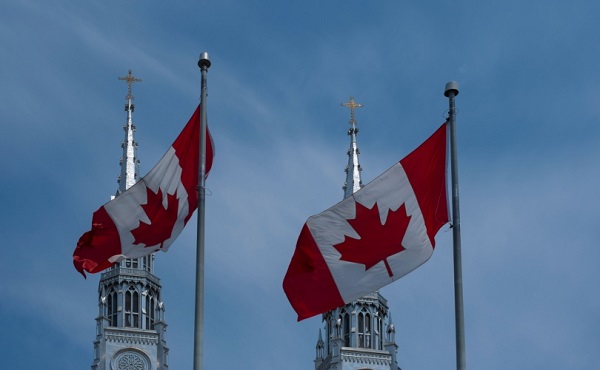Business
DOJ drops Biden-era discrimination lawsuit against Elon Musk’s SpaceX

 MxM News
MxM News
Quick Hit:
The Justice Department has withdrawn a discrimination lawsuit against Elon Musk’s SpaceX that was filed during the Biden administration. The lawsuit accused SpaceX of discriminatory hiring practices against asylum seekers and refugees. The move follows ongoing cost-cutting measures led by Musk as the head of the Department of Government Efficiency under the 47th President Donald Trump’s administration.
Key Details:
-
The DOJ filed an unopposed motion in Texas federal court to lift a stay on the case, signaling its intent to formally dismiss the lawsuit.
-
The lawsuit, filed in 2023, alleged SpaceX required job applicants to be U.S. citizens or permanent residents, a restriction prosecutors argued was unlawful for many positions.
-
Elon Musk criticized the lawsuit as politically motivated, asserting that SpaceX was advised hiring non-permanent residents would violate international arms trafficking laws.
Diving Deeper:
The Justice Department, led by Attorney General Pam Bondi, has moved to drop the discrimination lawsuit against SpaceX, marking another reversal of Biden-era legal actions. The case, initiated in 2023, accused SpaceX of discriminating against asylum seekers and refugees by requiring job applicants to be U.S. citizens or permanent residents. Prosecutors claimed the hiring policy unlawfully discouraged qualified candidates from applying.
The DOJ’s decision to withdraw the case follows a judge’s earlier skepticism about the department’s authority to pursue the claims. No official reason for the withdrawal was provided, and neither Musk, SpaceX, nor the DOJ have issued public statements on the development.
Elon Musk was outspoken in his criticism of the lawsuit, labeling it as a politically motivated attack. Musk argued that SpaceX was repeatedly informed that hiring non-permanent residents would violate international arms trafficking laws, exposing the company to potential criminal penalties. He accused the Biden-era DOJ of weaponizing the case for political purposes.
The decision to drop the lawsuit coincides with Musk’s growing influence within the Trump administration, where he leads the Department of Government Efficiency (DOGE). Under his leadership, DOGE has implemented aggressive cost-cutting measures across federal agencies, including agencies that previously investigated SpaceX. The Federal Aviation Administration (FAA), which proposed fining SpaceX $633,000 for license violations in 2023, is currently under review by DOGE officials embedded within the agency.
Meanwhile, SpaceX’s regulatory challenges appear to be easing. A Texas-based environmental group recently dropped a separate lawsuit accusing the company of water pollution at its launch site near Brownsville. The withdrawal of the DOJ lawsuit signals a significant victory for Musk as he continues to navigate regulatory scrutiny while advancing his business ventures under the Trump administration.
Business
Canada’s ‘supply management’ system makes milk twice as expensive and favours affluent dairy farms

From the Fraser Institute
By Fred McMahon
While the Canada-U.S. trade negotiations continue, with much speculation about potential deals, one thing is certain: Canada’s agricultural marketing boards remain a barrier to success.
A White House official said as much: “[Canada] has repeatedly demonstrated a lack of seriousness in trade discussions as it relates to removing trade barriers.” That’s a clear reference to agricultural marketing boards, our Iron Curtain trade barrier. International trade lawyer Lawrence L. Herman aptly described boards as “Canada’s Soviet-style supply management system.”
Agricultural marketing boards are as Canadian as maple syrup, but more so. Maple syrup is international. Supply management is uniquely Canadian. No other country has such a system. And for good reason. It’s odious policy, favouring an affluent few, burdening the poorest, and creating needless friction with allies and trading partners.
President Trump’s distaste for the boards is well known. But, it’s not just Donald. The European Union, the United Kingdom, the World Trade Organization (effectively all of Canada’s trading partners)—and, wait for it, the majority Canadian farmers—all oppose the boards.
Canada claims to support free trade, except when we don’t. Canada seals off a large portion of its agricultural market with the system, but gets irritable when another country closes part of its market—say for autos, aluminum or steel.
Marketing boards employ a variety of tools, including quotas and tariffs, and a large bureaucracy to block international and interprovincial trade and deprive Canadians of choice in dairy, eggs and poultry. Without competition, productivity stagnates and prices soar.
The cost of living in the United States is 8.4 per cent higher than in the Canada, rent 14.9 per cent higher. But, thanks to our marketing boards, milk is twice as expensive—C$3.07 a litre on average in Canada versus C$1.47 in the United States. The most recent estimate of the cost of the system revealed, using 2015 data, that the average Canadian household pays an extra $300 to $433 annually because of marketing boards, hitting hard poorer Canadians, who spend a higher portion of their income on food than affluent Canadians.
Martha Hall Findlay, former Liberal MP and leadership contender, now director of the University of Calgary’s School of Public Policy, wrote with outrage, “The average Canadian dairy farm’s net worth is almost $4 million…. This archaic [supply-management] system forces a single mother on welfare to pay hundreds of dollars more per year than she needs to, just so we can continue to enrich a small number of cartel millionaires… members of the oft-vilified ‘one-percent’.”
Don’t expect meaningful negotiations. Canada’s Parliament, endorsed by the Senate, recently unanimously passed Bill C-202, which prohibits the foreign affairs minister from negotiating increased quotas or reduced tariffs for imports of supply-managed products.
The dairy industry, particularly in Quebec, is the big player. To protect this mighty lobby, Bloc Québécois Leader Yves-François Blanchet proposed C-202, backed by all parties, fearing a Quebec backlash if they stood up for Canadians, including for Quebecers who lack the privilege of owning one of province’s 4,200 multi-million-dollar dairy farms of Canada’s 9,400.
The Canadian Agri-Food Trade Alliance (CAFTA), Grain Growers of Canada (GGC), and other farm groups oppose C-202. Scott Hepworth, acting chair of GGC, said, “Parliament chose to prioritize one group of farmers over another. As a grain producer, I know firsthand how important international trade is to my family’s livelihood. Without reliable access to global markets, farmers like me are left behind.”
Canada has 65,000 grain farms and 53,000 pig and beef farms, compared to 14,700 supply-managed farms, less than one per cent of the total of 190,000 farms in Canada.
Marketing boards benefit a tiny minority of Canadian farmers while damaging the majority and increasing prices for all Canadians. One benefit of Donald Trump’s trade war against Canada has been the resolve on all levels of government to reduce home-grown obstacles to growth, including iron trade curtains between provinces.
The spineless response to C-202 reveals the weakness of that resolve and politician’s willingness to bend the knee to rich lobbies, toss other farmers under the bus, and carelessly pile on costs for Canadians, particularly low-income ones.
Business
Conservative MPs denounce Liberal plan to strip charitable status of pro-life, Christian groups

From LifeSiteNews
Conservative MPs presented a petition in Parliament defending pro-life charities and religious organizations against a Liberal proposal to strip their charitable tax status.
Conservative MPs presented a petition calling for the rejection of the Liberals’ plan to strip pro-life charities and places of worship of their charitable status.
During the September 16 session, Conservative Members of Parliament (MPs) Andrew Lawton, Jacob Mantle, and Garnett Genuis defended pro-life charities and places of worship against Liberal recommendations to remove the institutions’ charitable status for tax purposes.
“I have received from houses of worship across this country so much concern, reflected in this petition, that these recommendations are fundamentally anti-free speech and anti-religious freedom,” Lawton told Parliament. “The petitioners, and I on their behalf, advocate for the complete protection of charitable status regardless of these ideological litmus tests.”
Similarly, Mantle, a newly elected MP, added that Canadians “lament that some members opposite are so blinded by their animus towards charitable organizations that they would seek to undermine the good works that these groups do for the most vulnerable Canadians.”
Religious charities provide care and compassion to the most vulnerable in our society, but some members of the Liberal and New Democratic parties are so blinded by their animus towards religion and faith that they are actively seeking to revoke the charitable status of ALL… pic.twitter.com/O12rkw3pJ0
— Jacob Mantle (@jacobmantle) September 16, 2025
Finally, Genuis, who officially presented the petition signed by hundreds of Canadians, stressed the importance work accomplished by religious and pro-life organizations.
“(R)eligious charities in Canada provide vital services for society, including food banks, care for seniors, newcomer support, youth programs and mental health outreach, all of which is rooted in their faith tradition, and that singling out or excluding faith charities from the charitable sector based on religious belief undermines the diversity and pluralism foundational to Canadian society,” he explained.
As LifeSiteNews previously reported, before last Christmas, a proposal by the all-party Finance Committee suggested legislation that could strip pro-life pregnancy centers and religious groups of their charitable status.
The legislation would amend the Income Tax Act and Income Tax. Section 429 of the proposed legislation recommends the government “no longer provide charitable status to anti-abortion organizations.”
The bill, according to the finance department, would require “registered charities that provide services, advice, or information in respect of the prevention, preservation, or termination of pregnancy (i.e., destroying the unborn)” to disclose that they “do not provide specific services, including abortions or birth control.”
Similarly, Recommendation 430 aims to “amend the Income Tax Act to provide a definition of a charity which would remove the privileged status of ‘advancement of religion’ as a charitable purpose.”
Many Canadians have warned that the proposed legislation would wipe out thousands of Christian churches and charities across Canada.
As LifeSiteNews reported in March, the Canadian Conference of Catholic Bishops (CCCB) appealed to the Liberal government to rethink the plan to strip pro-life and religious groups of their tax charity status, stressing the vital work done by those organizations.
-

 Alberta1 day ago
Alberta1 day agoSylvan Lake high school football coach fired for criticizing gender ideology sends legal letter to school board
-

 International12 hours ago
International12 hours agoTrump sues New York Times for $15 billion over ‘malicious, defamatory’ election coverage
-

 Energy2 days ago
Energy2 days agoA Breathtaking About-Face From The IEA On Oil Investments
-

 COVID-191 day ago
COVID-191 day agoFreedom Convoy leader slams Canadian gov’t agency for praising its treatment of protesters
-

 Frontier Centre for Public Policy2 days ago
Frontier Centre for Public Policy2 days agoBloodvein Blockade Puts Public Land Rights At Risk
-

 Business2 days ago
Business2 days agoOttawa’s so-called ‘Clean Fuel Standards’ cause more harm than good
-

 International2 days ago
International2 days agoFrance records more deaths than births for the first time in 80 years
-

 National2 days ago
National2 days agoChrystia Freeland resigns from Mark Carney’s cabinet, asked to become Ukraine envoy




